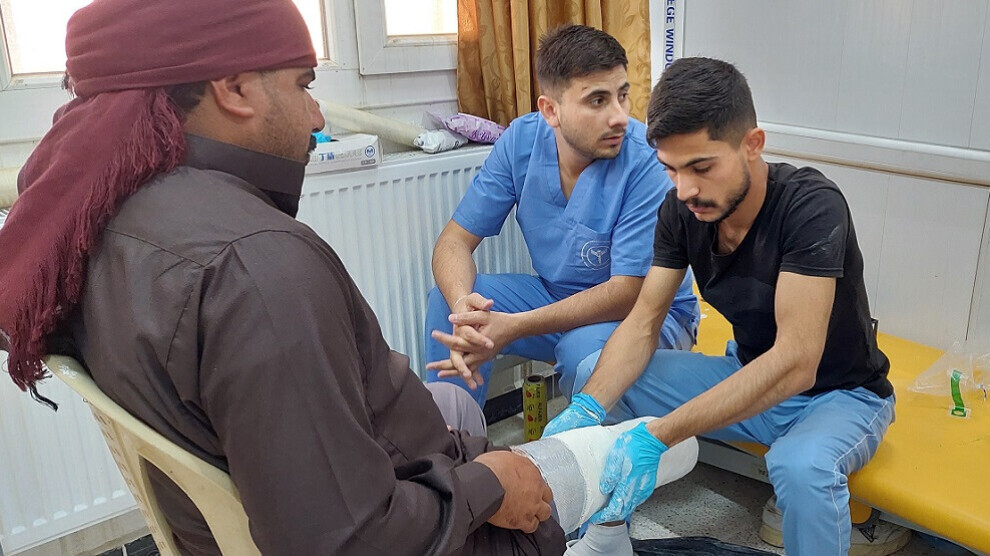The only prosthesis workshop in the autonomous region of northeast Syria is located in a village near Qamişlo. Eight dedicated employees take care of tens of thousands of war-disabled people, and the need is enormous.
In a village near Qamişlo lies the only prosthetic workshop in the autonomous region of northern and eastern Syria, linked to the region’s self-government. Everything radiates friendliness and welcome: The green garden, the waiting room, the workshops, the staff. At the same time as we arrive, a minibus from Deir ez-Zor arrives and the waiting room fills up with young Arab men. It is exactly at this point that the guiding principle of the prosthesis workshop meets reality: We are here for everyone! Nationality, cause of injury, loss of limbs due to illness or missing limbs from birth make no difference. This workshop serves the entire population of the Autonomous Administration area and all services are free of charge.
Eight employees work here and they cover all areas of responsibility from the initial consultation to the fitting and production of the prostheses to the administration and ordering of the material. The word ‘ordering’ does not even begin to express the problems that are encountered here in the procurement of materials.
The embargo makes it difficult to procure materials and machinery, and not every material supplied meets the necessary quality requirements; for example, high-quality silicone from Germany is urgently needed. Here on site, the conditions for production are lacking. So the deliveries arrive here only after a long trip around the world: Europe – Dubai – Turkey – South Kurdistan – Qamişlo.

Recurrent supply stoppages also halt the production of prostheses and lead to long waiting times, up to a year. Without supply bottlenecks, 300 to 400 prostheses can be produced and fitted each year, and many more need repair. It’s an amazing feat, accomplished mainly through manual labor.
Emotional support: drinking tea and giving encouragement
This is the technical side of the work, but the employees always emphasize the necessary psychological support for people who need a prosthesis. Many young people have to live with missing limbs due to the war, many people are injured by Turkey’s constant attacks or lose arms and legs due to mines. It is not only about the technical repair of a physical problem, it is also about emotional support. The staff see this as an important task: “We take time to talk, drink tea together and encourage the patients. If time permits, we also visit people at home and ask how they are coping with their prosthesis. Without a positive attitude toward the prosthesis, it is difficult to live with it.”
Here, problems become challenges that one wants to solve with all one’s strength and optimism. But they should still be mentioned: lack of space, lack of new machines and the lack of materials already described above.
There will soon be more space. A new building is almost ready. Here there will also be a department for psychological support of the patients, a physiotherapeutic department and overnight accommodation for people who have to stay for several days.
Are there any wishes? Yes, a visit from specialists from Germany would be nice. The whole team could learn new techniques. And support from aid organizations would make the work easier and shorten the waiting times for prostheses.

